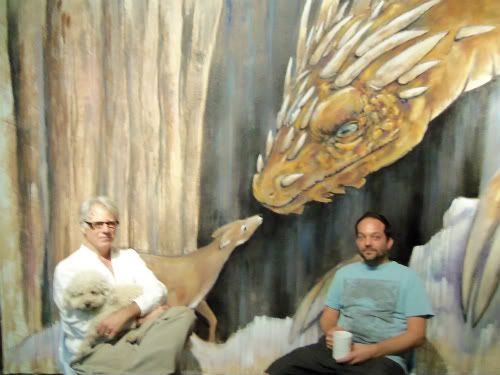
On the Joys of Owning an Art Gallery...
BP: I love owning an art gallery. I think that I have probably the coolest job on the planet, mainly because I get to meet and hang out with people who have a different perspective than me. To me, that is the most rewarding thing, and why I keep doing it, even through the hard times. The artists are what keep me going. Mike, do you love your artists like I love mine? Every single artist we show becomes a part of my family.
MM: Do you ever feel like you let them down? Because they only get to hang once a month.
BP: I think they understand the business. I do feel sad when they have to take their art down after the show, but after three weeks, I'm ready to move on.
MM: How do you pick artists? Do you ever pick artists that you wish you didn't pick? When you say they are all family, do you take risks on people you don't know?
BP: I do take risks. You're taking a risk with an artist who has never shown their art before, but that's what we do.
MM: When you think about it, there isn't really much of a risk, because it's not like we sell much art anyway.
BP: But then you find artists like John Sollom, who have a real sense of responsibility and hard work, and I want all my artists to be like John.
MM: But even with artists like that, I keep thinking we're not honoring them properly. We're not open a lot, and a month goes by, and a month here is equivalent to a day of being open at MOCA.
BP: I think we have to be honest with artists and up front and tell them that the First Friday is the day when we bring people in.
MM: I suppose you just have to look at it that way. My friend Katherine was telling me that there's this gallery in Los Angeles that's only open once a month.
BP: A lot of galleries are like that.
MM: Maybe we need to make it like some weddings that go on all weekend…
BP: Just serve ecstasy.
MM: We might have problems with that.
BP: Being a gallery owner, you get to empower artists who might not even seem themselves as artists. It takes a lot of courage to be on the walls.
MM: There's something beautiful about that. Maybe that's one of the failings of the big giant galleries and museums. When you go to the Museum of Modern Art, what chance does the average artist have of just walking in there and asking, "Can I hang something up here?" It becomes more judgmental, instead of open.
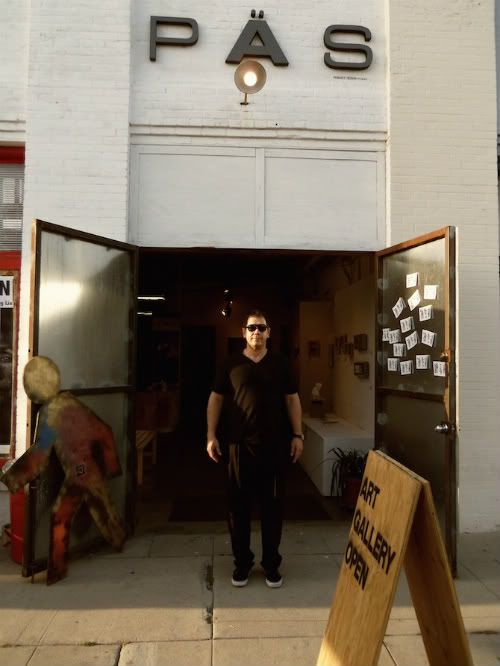
On Art School…
MM: One of the things that prevented me from succeeding in college was that I was worried that the instructors would forever change the way I create something. I fought it. I would verbally joust with the teachers, to the point where I would refuse to take tests. I would tell them, "I think that test is ridiculous. It's ridiculous that I have to learn dates."
BP: I got my degree in advertising. Then I went back for my MFA in art, and I had the same problem. I tried to express myself, and I kept getting these walls put in front of me. I got frustrated, and so I opened a gallery.
MM: There's always someone telling you why you can't do something, instead of looking and saying, "Let's figure out a way." It seems like more than ever that that is the common personality type in society, is the people who say, "Don't do this. You can't succeed."
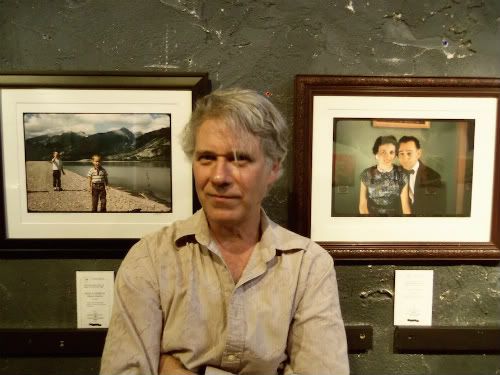
On The Magoski Arts Colony…
MM: I try to not have a specific vision as much as possible, because I think that's one of the problems with big projects like this. Instead, I try to let things grow organically. I've learned to be open to new directions.
BP: There's no set plan. The plan changes all the time.
MM: There is a long range plan of what we'd kind of like to achieve, but we shouldn't really even exist in the first place, we're so undercapitalized and everything is working against it. So every stride we make forward is its own miracle to me, and I just accept it for that. We are moving toward the final stage of building, and it might actually be done. I don't think I've ever finished anything in my life. I don't mean "done" as in it stops growing, but done in the sense that it's self-sustaining.
BP: What started this whole thing was us sitting together like this talking about what could happen. I don't think any of us could have envisioned what it is today. You can't predict what's going to happen.
MM: You can't force something like this.
BP: If there's an ideal vision for this space, I think it's about just doing what we do, and accepting whatever comes out of it. I dream of artists making art every single day in here. I feel lucky to be able to work here every day and be a part of it. That's my dream.
MM: I like that dream. I don't think we're that far off.
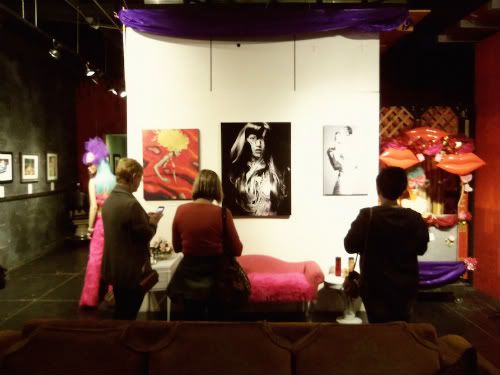
On Art…
MM: I look at art as becoming vulnerable and being willing to share that vulnerability to an audience.
BP: That's why I love being a gallery owner. Those are the people I love to surround myself with. The people who are vulnerable, raw, honest, real, truthful to the core and have the ability to express it. That's why I love my job. I'm still becoming that kind of artist.
MM: I think very few people can stay in that mode for long stretches of time. To make yourself vulnerable, you have to have a place where you feel at home. I think that's what this place can be. It's okay to let your guard down, it's okay to say whatever your truth is, it's okay if people don't like it or disagree. I can respect that.
BP: But that's what makes this place so great. At a normal workplace, you can't be totally open and raw.
MM: At a normal workplace, there are lots more protocols and policies. I suppose the reason for that is because the purpose is monetary profit. And in order to get there, you can't allow a lot of dissent or individuality. In a place like this, the purpose is different. Profit is not our main motive. We are trying to sell oranges in a world of apples.
BP: What about cultural and social impact? We're touching the lives of all these people. And our kids, the next generation, things will be different.
MM: Maybe that's one of the reasons why business doesn't relate to art, why people whose lives revolve around profit don''t see the value of art, because it proposes a different value system. So art is threatening to people in power, because it's saying, "The world isn't all about money and material things." The world is about the community you create in your own sphere. The world is about sharing your struggle to understand what life is and to share that with your fellow man.
BP: Business executives don't want to go there.
MM: That's what I'm saying. That's why art is threatening to business. If you allow artists power, what do you think they're going to do? Do you think they are going to naturally do the thing that's going to make the most money?
BP: No.
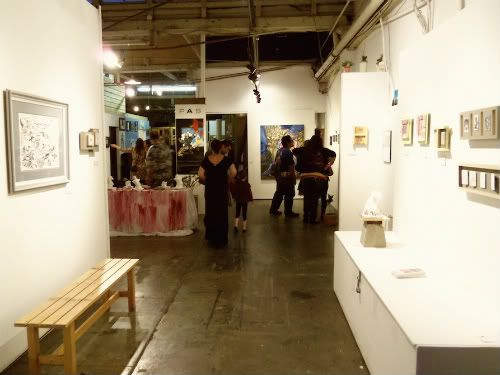
This interview will appear in the forthcoming issue of Hibbleton Independent magazine.
The Magoski Arts Colony is located at 223-225 W. Santa Fe in Fullerton, CA.
